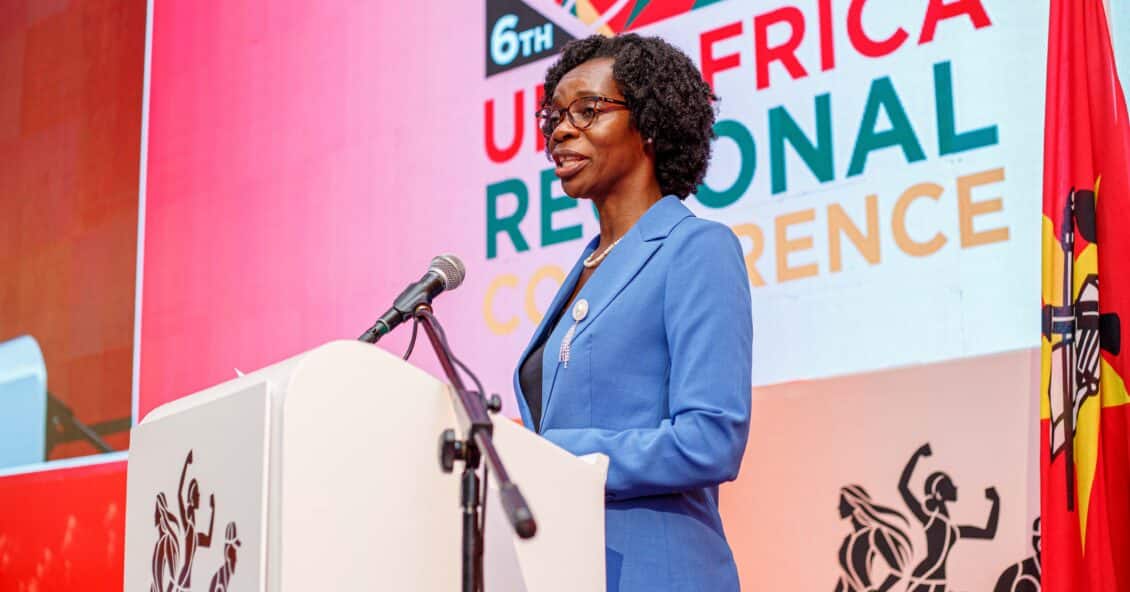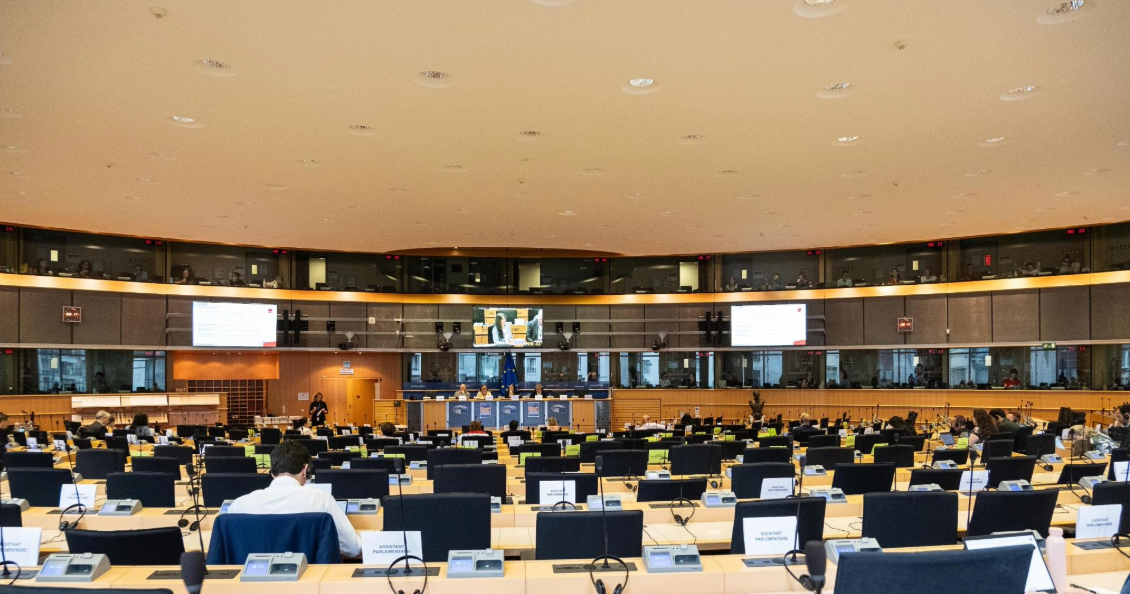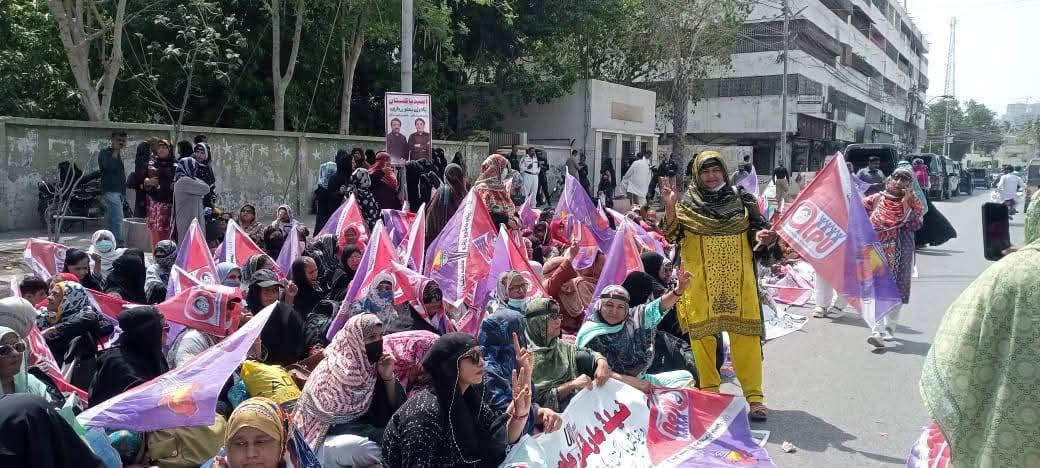6th UNI Africa Regional Conference opens in Maputo on Independence Day
26.06.25
The 6th UNI Africa Regional Conference opened with an evening of vibrant music, dancing and a stirring Mozambican choir on Tuesday in Maputo, marking the start of two days of strategy, solidarity, and movement building under the theme “Consolidate Working Class Power.”
The opening coincided with a historic milestone. Welcoming delegates to the capital, known as the “City of Acacias,” Amos Matsinhe, President of UNI’s Mozambican Liaison Council and General Secretary of UNI affiliate SINECOSSE, said: “Today is a great day for us because our country is celebrating 50 years of national independence following a long conflict that was successful in part due to international solidarity.”
Ivete Ferrao Alane, Mozambique’s newly appointed Minister of Labour, Gender and Social Welfare (pictured), delivered the keynote address, highlighting her country’s long tradition of tripartite social dialogue:
“It is with great pride I give you the warm welcome on behalf of Mozambique, for this important and significant meeting for our country. We embrace you with pride and joy. Your presence shows us that collective bargaining is the basis of social justice and our country has a tradition of tripartite social dialogue.”
She acknowledged the need to expand collective bargaining and attract more young people to strengthen unions. She emphasized that Africa must play an active role in technological development and said her government will collaborate with trade unions to ensure workers benefit from the prosperity it creates.
Guest speaker Damiao Simango, from the national labour confederation, OTM, (Organização dos Trabalhadores de Moçambique) paid tribute to the vital role workers played in the country’s liberation struggle. Founded on 13 October 1976, not long after independence, OTM emerged from this legacy of resistance and continues to champion the rights of workers today.
Amid high unemployment, informal work and deepening poverty, he reaffirmed the union’s commitment to defending social gains and promoting justice and wellbeing for all. He called for a minimum wage that meets basic living needs and stressed the importance of education and training as tools for worker empowerment.
The conference runs from 25 to 27 June, and is the first time that UNI Africa affiliates have come together for eight years due to the Covid pandemic. Oyinkan Olasanoye, Vice President of UNI Africa said:
“We come from various countries, cultures and industries, but we share a common commitment to advancing the interests of working people and their families. Over the next few days, we will engage in robust discussions, workshops and strategy sessions focused on the most pressing issues facing workers today, how to address the challenges and consolidate our previous wins.”
Reflecting on the global challenges facing unions – rising inequality, technological disruption, climate change, threats to democracy and post-pandemic recovery – UNI Global Union General Secretary Christy Hoffman, emphasized that only through collective action can unions rise to meet these obstacles. Setting the mood for the conference she said:
“We come together across this region to take action in solidarity with one another, which gives us collective hope. True hope in the context of our fight for social justice, is not based on fantasy or a wish but rather on the confidence that progress can be achieved if people come together and act.”
Mozambique
UNI Africa


